The HBO original film ‘The Great Lillian Hall’ stars Jessica Lange as Lillian Hall, a legendary stage actress who must battle dementia to prepare for a new Broadway production of ‘The Cherry Orchard.’ Lillian’s deteriorating memory poses significant challenges, causing concern for the production’s director, David (Jesse Williams), and producer, Jane (Cindy Hogan). The melodrama also features several supporting characters including Lillian’s loyal assistant Edith (Kathy Bates), her daughter Margaret (Lily Rabe), and her neighbor Ty (Pierce Brosnan).
Directed by veteran playwright and filmmaker Michael Cristofer, the television film is said to be inspired by the life of renowned stage actress Marian Seldes. It blends visual exploration of the theatrical world along with a strong, character-driven narrative. In addition to building suspense around whether Lillian will manage to perform on opening night, the screenplay also captures some harsh realities of dementia, depicting Lillian’s struggle to maintain her dignity and save the lasting impact of her career amid her declining health. For viewers who like stories about facing such metaphorical battles, here are ten movies like ‘The Great Lillian Hall.’
10. Clouds of Sils Maria (2014)
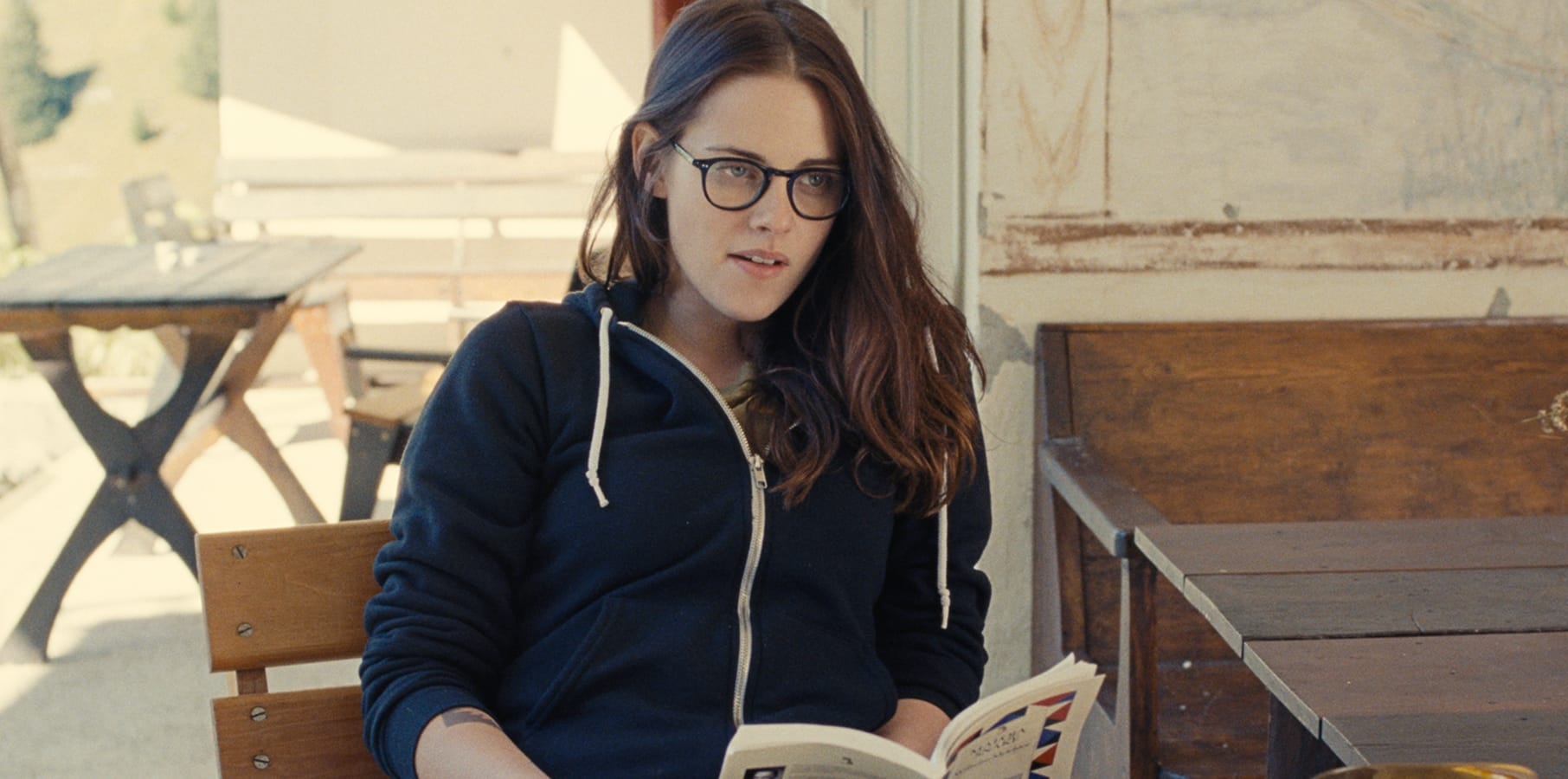
This thought-provoking drama centers on Maria Enders, a renowned actress asked to star in a revival of the play that launched her career, but this time in the role of an older character. Painting a picture of a never-ending battle between aging and identity, director Olivier Assayas’s project features Juliette Binoche as Maria, as her insecurities — fuelled by the progression of time — shift the tides of her career. The on-screen drama in ‘Clouds of Sils Maria’ evokes the kind of sadness one is likely to feel when finding oneself amidst the complex dynamics between youth and experience. Its exploration of self-reflection strikes chords with the themes seen in ‘The Great Lillian Hall,’ going deeper into the personal struggles of artists confronting their past achievements and their inevitable transition into nothingness.
9. The Leisure Seeker (2017)
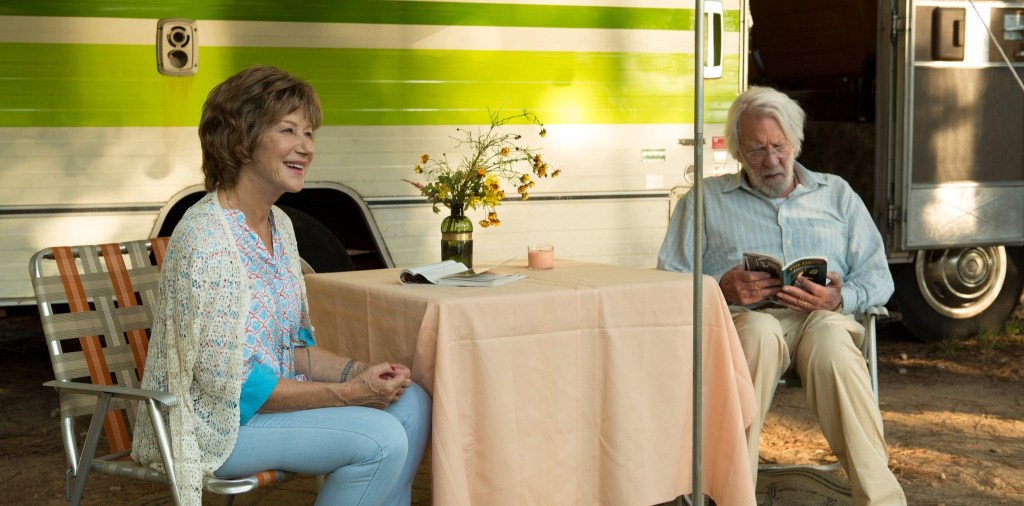
On a road trip in their RV, Ella and John Spencer, an elderly couple, embark on one final journey to self-discovery. Named after the couple’s vintage vehicle, this adaptation of Michael Zadoorian’s eponymous novel centers around the protagonistic couple’s battle against Alzheimer’s and cancer. Directed by Paolo Virzì, the film explores themes of memory and the twilight years of life. Helen Mirren and Donald Sutherland star as the Spencers as their final adventure attempts to defy the challenges of aging. Similar to ‘The Great Lillian Hall,’ ‘The Leisure Seeker’ advocates for fighting against harsh circumstances rather than succumbing to them, while also pursuing a new meaning in later life. Both films highlight the emotional turmoil of characters confronting their legacies and trying to search for positives in the inevitable changes that come with time.
8. Synecdoche, New York (2008)
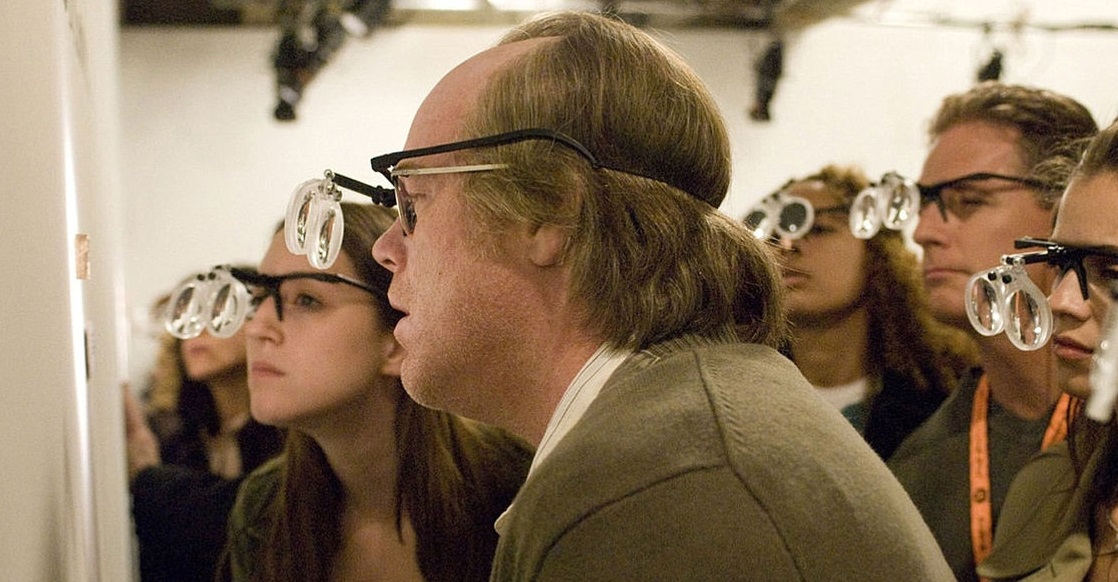
In his signature postmodern style, screenwriter Charlie Kaufman’s directorial debut follows theater director Caden Cotard’s ambitious efforts on a project to create a life-sized replica of New York City inside a warehouse. The surreal film dives deep into narrative and metaphorical discussions of mortality, art, and the search for meaning. Philip Seymour Hoffman’s portrayal of Caden captures the existential struggle of an artist trying to make sense of his life and work as he faces endless personal and professional crises.
The psychological drama’s commentary on the relentless pursuit of artistic expression parallels ‘The Great Lillian Hall,’ with both their protagonists feeling their accomplishments are about to vanish into thin affair. Furthermore, the movies’ philosophies remain universal in their portrayal of the complexities of human existence and the desire to leave a lasting legacy.
7. Still Alice (2014)

‘Still Alice’ is a family drama that stars Julianne Moore in the titular role. The matriarch of the Howland family, Alice is also a successful linguistic expert and professor at Harvard University, who starts experiencing memory loss and confusion. Based on Lisa Genova’s best-selling book of the same name, the indie drama presents Alice’s diagnosis of early-onset Alzheimer’s disease and how it affects her career and family.
Directed by Richard Glatzer and Wash Westmoreland, the adaptation descends heavily into identity, loss, and the struggle to maintain one’s sense of self amidst an illness that breaks a person both physically and psychologically. In an Academy Award-winning performance, Moore succeeds in bringing out Alice’s traumatic journey intimately and brutally, mirroring Jessica Lange’s theatrical presence as Lillian Hall. Furthermore, both these movies offer a deep, empathetic look at the personal transformation and resilience of middle-aged women in the face of a life-altering condition.
6. Hitchcock (2012)
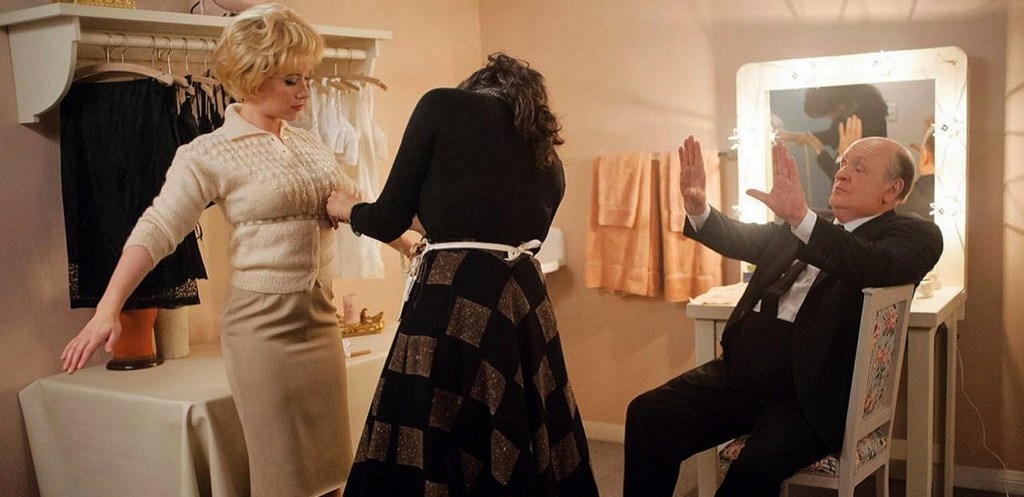
This venture pulled off the unique feat of having Anthony Hopkins, one of the greatest auteurs in front of the screen, portraying one of the greatest ones behind it, Alfred Hitchcock. The film, directed by Sacha Gervasi, borrows from Stephen Rebello’s book, ‘Alfred Hitchcock and the Making of Psycho,’ and portrays the events that led to the making of the 1960 psychological horror. In its exploration of Hitchcock’s creative process and how his relationship with his wife, Alma Reville (Helen Mirren) influences it, the biographical sheds light on various challenges the legendary filmmaker faced.
Bringing Hitchcock’s obsession, and artistic struggle to life amidst widespread skepticism, this behind-the-scenes look echoes the darker aspects of professional pressures and failures, not much dissimilar to ‘The Great Lillian Hall.’ While the backdrop of an auteur’s long-awaited comeback is alike in the two projects, it is also fuelled by likewise character relationships which affect the protagonist’s determination and self-belief to embody a masterpiece amidst higher stakes.
5. I’m Still Here (2010)

This is a mockumentary film that stars Joaquin Phoenix in a fictionalized version of himself. The idea of ‘I’m Still Here’ originated in 2008 with Phoenix’s shocking announcement of retiring from acting to pursue a career in hip-hop. The interviews, public appearances, and cameras that followed the actor in those 2 years fed the screenplay before it turned out to be an elaborate hoax. Written by director Casey Affleck and Phoenix himself in his solo writing credit, the docu-drama captures Phoenix’s erratic behavior, failed musical career, and media buzz surrounding his supposed career change.
‘I’m Still Here‘ also offers plenty of dark humor in its satirical depiction of celebrity culture, identity, and the performative nature of fame, all of which are reflected in ‘The Great Lillian Hall’ which realistically showcases these elements. Like Lange, Phoenix’s intense and often obsessive performance explains how external perceptions and personal struggles intertwine. The films also offer an unfiltered look at the pressures artists find themselves surrounded with, and maintaining a public image at the cost of worsening their personal issues.
4. All About Eve (1950)
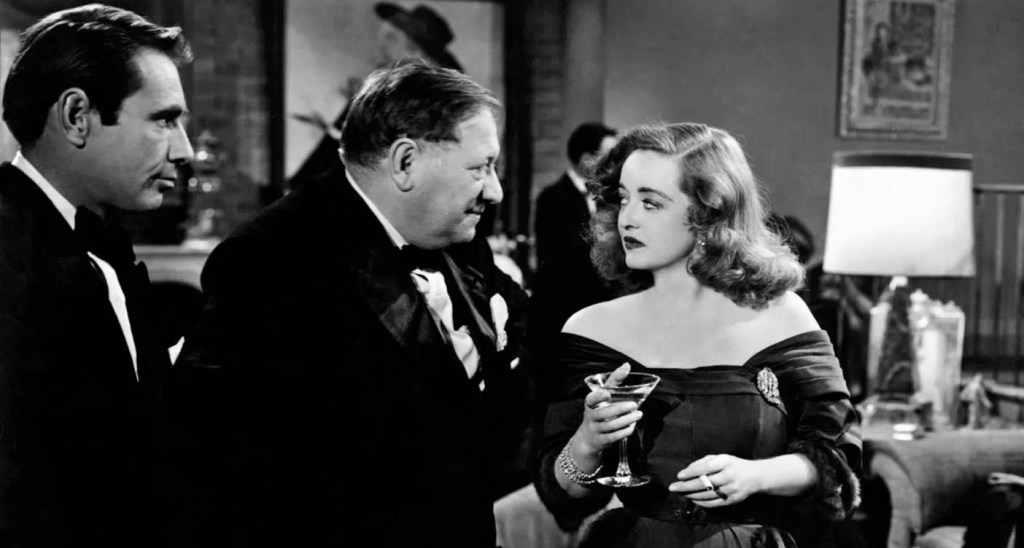
Nominated for a record 14 Oscar nominations, ‘All About Eve’ chronicles the rise of Eve Harrington (Anne Baxter), an ambitious young actress who slides herself into the life of Broadway star Margo Channing (Bette Davis). Based on Mary Orr’s short story ‘The Wisdom of Eve,’ the film is stuffed with sharp dialogues and complex characters, highlighting the cutthroat nature of the theater world. Much like ‘The Great Lillian Hall,’ the central premise of this Joseph L. Mankiewicz directorial lies in its depiction of obsession, jealousy, and endless desires that follow fame. The presence of central characters, who are willing to ruthlessly manipulate and deceive to achieve their goals, offers an exaggerated critical perspective of the entertainment industry’s most determined auteurs.
3. Sunset Boulevard (1950)
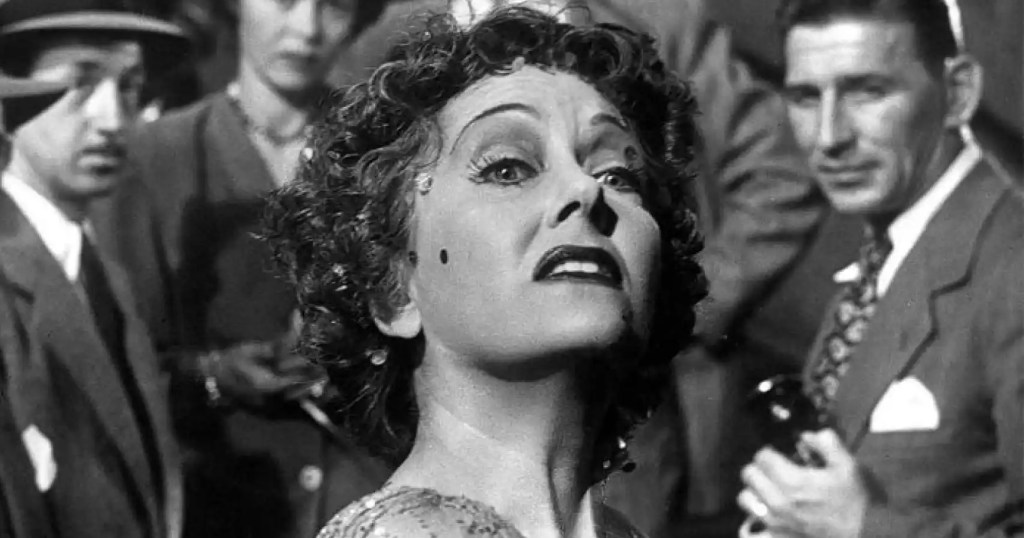
The other 1950 movie to take home multiple Oscar statues, this classic from filmmaker Billy Wilder follows the story of Joe Gillis, a struggling screenwriter whose life takes a scandalous turn when he meets Norma Desmond, a faded silent film star yearning for a comeback. The satirical film-noir examines the dark side of Hollywood. Norma’s delusions and Joe’s gullibility create a tense narrative that keeps viewers on the edge of their seats.
Delving into themes of ambition, fame, and the progression of time, ‘Sunset Boulevard’ is also a strong character drama. Wilder’s Academy Award-winning direction and screenplay paint a vivid picture of the destructive nature of stardom, which can also be found in ‘The Great Lillian Hall.’ The dramas’ focus on artists trapped by their past glories and the price they might have to pay to secure the same ultimately becomes a social commentary on the superficial concepts of relevance and legacy,
2. A Star is Born (1954)
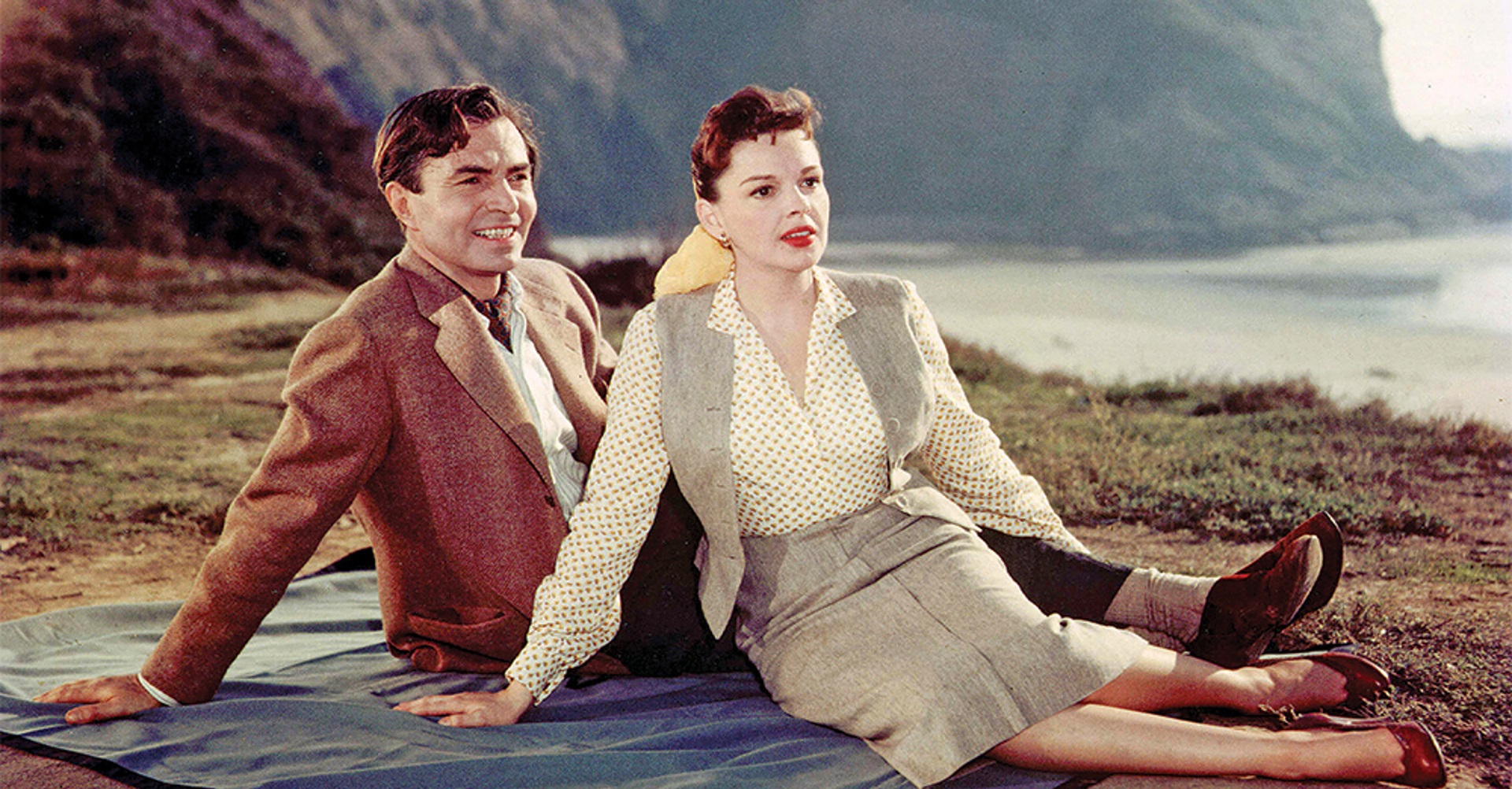
The first — and most acclaimed — of multiple high-profile remakes of William A. Wellman’s 1937 film of the same name, this romantic drama tells the story of Esther Blodgett (Judy Garland) and her lover and mentor, Norman Maine (James Mason). A talented singer, Esther rises to fame when Norman takes her under his wing. However, an established but troubled actor, Norman’s own life begins to derail and subsequently affect Esther.
Esther’s success contrasts sharply with Norman’s downward path, showcasing the highs and lows of show business. Directed by George Cukor, the musical romance captures the bittersweet essence of stardom and the negativity it causes to even the most loving people. The themes of success and sacrifice in ‘A Star is Born‘ are reflected in ‘The Great Lillian Hall,’ which also illustrates the personal prices paid for public admiration.
1. What They Had (2018)
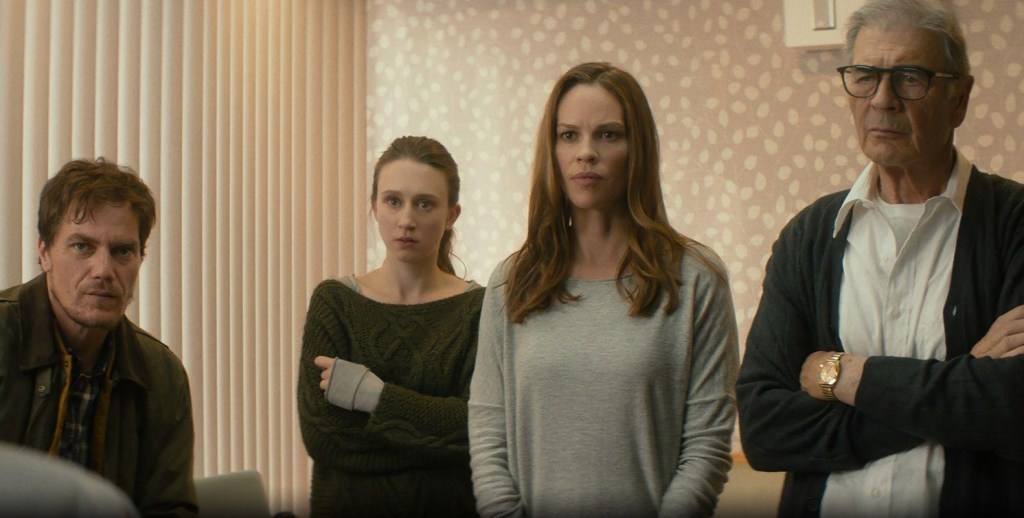
Elizabeth Chomko’s ‘What They Had’ centers on Bridget, who returns home to help her brother and father care for her mother, Ruth, who is dealing with the difficulties of having Alzheimer’s disease. A sincere expedition of family dynamics, memory, and coping with illness, the drama features Hilary Swank and Michael Shannon in powerful and realistic performances as siblings coming to terms with the emotional challenges and responsibilities that come with their mother’s condition. ‘What They Had’ shares with ‘The Great Lillian Hall’ its central conflict of a woman dealing with dementia. In both cases, the premise subtly transforms into a tale of personal struggle and the impact on relationships, highlighting the emotional toll of caring for a loved one and the inevitable adjustments that come with life-altering conditions.
Read More: Where Was The Great Lillian Hall Filmed?

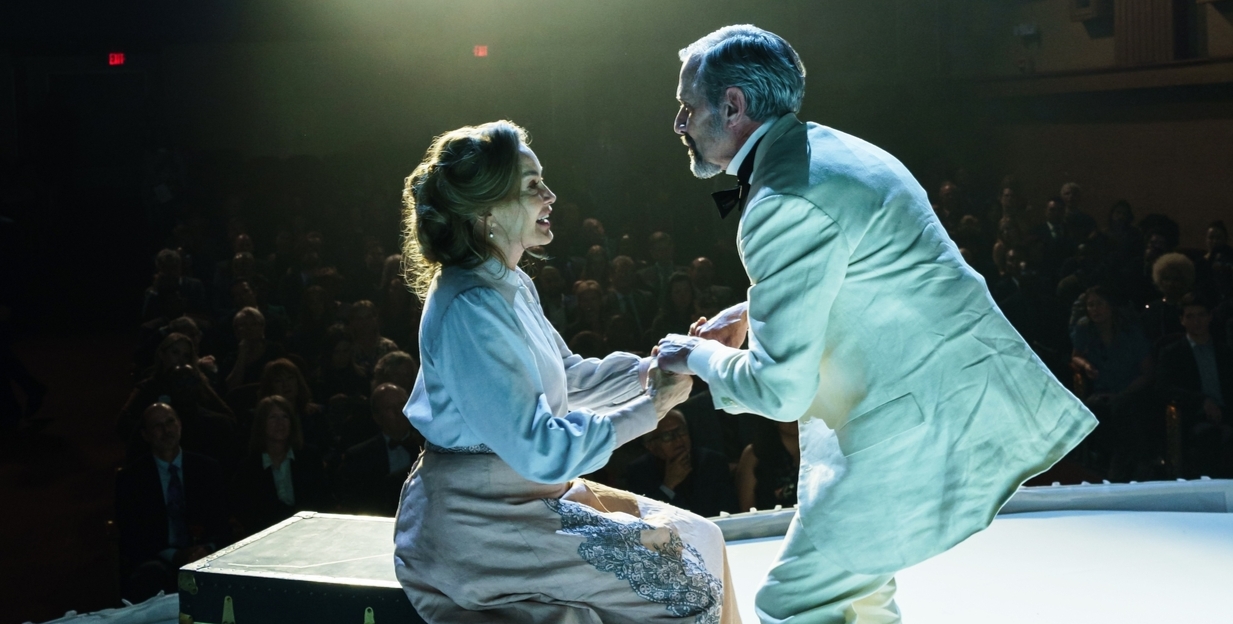
You must be logged in to post a comment.